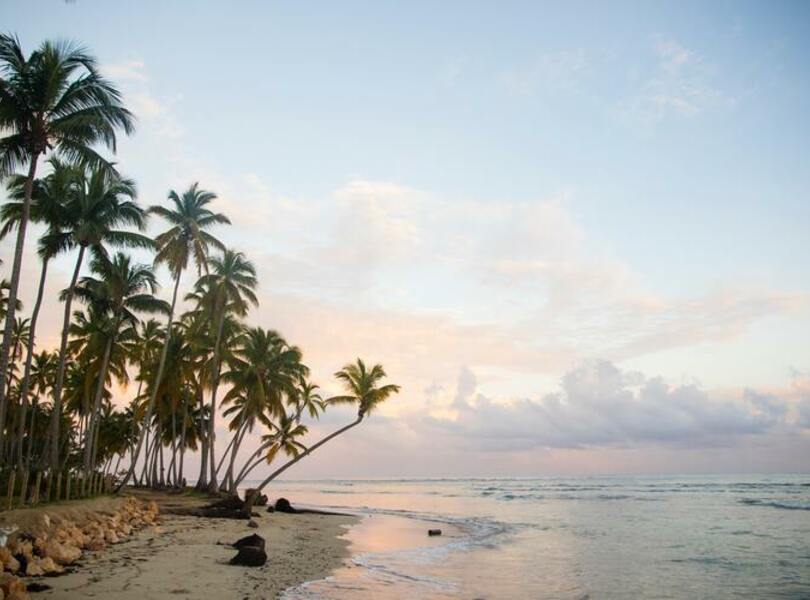If you’re interested in Dominican citizenship, this is the guide for you.
Perhaps you have familial ties to the Caribbean island state, or you already live and work there, or you’ve heard about the country’s popular citizenship by investment program.
Whatever your reason, we’ll explain all of the available options to obtain Dominican citizenship, along with the steps involved. We’ll also cover the benefits of the Dominica passport and answer some of your most frequently asked questions.
As an officially licensed agent for the Dominica Economic Citizenship Program, we have extensive experience with the country’s routes to citizenship. We’ll outline everything we know in this guide. Still, if you’d like further support, our international experts can advise on every aspect of gaining citizenship in Dominica, the Caribbean and worldwide. You can contact us to organize a free consultation.
How To Obtain Dominica Citizenship
There are five main routes for a foreign national to get citizenship in Dominica:
- Citizenship by birth
- Citizenship by descent
- Citizenship by naturalization
- Citizenship by marriage
- Citizenship by investment
Let’s explore each of these further.
Citizenship by birth
If you were born in Dominica, regardless of the nationality of your parents, then (in most cases) you are automatically considered a citizen and have a right to a Dominica passport.
This is because many countries, Dominica included, operate on the principle of jus soli (“right of the soil” in English) – the acquisition of citizenship based upon the territory in which you are born.
This is a simple, easy route to citizenship, but it doesn’t apply to many foreign nationals given their parents (or, at the very least, their mother) must be in the country at the time of birth. The next four options explain routes for those born outside of Dominica.
Citizenship by descent
If you have at least one parent who is a citizen of Dominica, you might be able to claim citizenship by descent.
This pathway is designed to maintain the connection between the Dominican diaspora and the nation, recognizing the right of those with Dominican heritage to be part of the country. Typically, eligibility extends to the first generation born abroad.
Your parent(s) might have been born in Dominica, or they could have gained citizenship through any one of the routes described in this guide. It doesn’t matter – as long as you can prove they had Dominica citizenship at the time of your birth, you’re eligible for consideration.
The process is fairly simple:
- Preparation: You must gather all necessary documents, which typically include your birth certificate, your Dominican parent’s birth (or citizenship) certificate, and identification documents like passports.
- Application: The collected documents, along with a completed application form, need to be submitted to the Government of Dominica. This is usually done through a consulate or embassy if applying from abroad.
- Processing: Upon submission, the application undergoes a verification process where Dominica’s authorities will check the documents and your eligibility. You might be required to attend an interview at a local embassy.
- Approval: Once the application is approved, you’ll be granted Dominican citizenship, and a certificate of citizenship is issued as official proof.
The timeline for this process can vary for several reasons (for example, processing workload, accuracy of documentation, and the need for additional checks). Simple applications may be processed in a few months, while more complex cases may take over a year.
Citizenship by naturalization
If you’re a foreign national living in Dominica, you might be eligible for citizenship by naturalization.
The rules are simple:
- You must have legally resided in Dominica for at least seven years before your citizenship application.
- You must show good character – for example, a clean criminal record.
- You must intend to continue residing in Dominica.
So, say you’ve worked in Dominica for the last seven years and decide you want to stick around, then naturalization is an easy path for you. The application process involves:
- Preparation: Collect necessary documents, including legal proof of continuous residence, a clean police record, character references, and any other documents that prove ties to Dominica.
- Application: Complete the application form for naturalization and submit it along with all required documentation to the Ministry responsible for citizenship. There is usually a non-refundable application fee.
- Processing: The application is reviewed by the relevant authorities, who may conduct interviews, request additional documentation, or carry out background checks to verify the information provided.
- Approval: If the application is approved, you’ll be required to take an Oath of Allegiance to Dominica. Afterwards, a Certificate of Naturalization is issued, officially granting the applicant Dominican citizenship.
There’s no official guidance on how long the naturalization application process takes in Dominica, but, in most countries, it’s common to get a decision within six months (unless there are backlogs or unforeseen issues).
Citizenship by marriage
If you’re married to a Dominican, you might be eligible for citizenship.
Beyond a legally valid marriage, there are some further requirements:
- The marriage must be valid – you’ll need proof, like a marriage certificate for example.
- You need to reside in Dominica for three years before the application and you must remain married during this time. This helps to ensure the marriage is stable and genuine.
- You must show good character – for example, a clean criminal record.
The process is largely the same as the naturalization application process described in the section above, but additional documentation like a marriage certificate and proof of your spouse’s Dominican citizenship (such as a passport or birth certificate) will be required.
During the processing of your application, you and your spouse may also be required to attend interviews to confirm the authenticity of the marriage and ensure compliance with all other requirements.
Citizenship by investment
The Dominica citizenship by investment program was launched in 1993 to encourage foreign investment in the island state.
It’s proved an incredibly popular program, especially with individuals and families looking for a “Plan B”, greater global mobility (due to attractive visa-free travel options), or better financial planning (Dominica has few tax obligations).
As long as you meet the following requirements, then you’re eligible to apply:
- You must be at least 18 years of age
- You must be of good character, with a clean criminal record
- You must be in good health and have no serious illness
- You must have adequate funds available (more on this below)
- You must have a basic knowledge of English
Then, as part of the application, the Dominica citizenship investment program requires you to invest in either of the following:
- The Dominica Economic Diversification Fund: You can make a non-refundable contribution to the government fund, which is used by the Dominican government to pay for new infrastructure, education, health, and green energy projects. Costs start from $100,000 USD for a single applicant.
- Dominica Real Estate Investment: You can purchase real estate in Dominica. It must be a government-approved real estate development with a minimum value of $200,000 USD, and you must hold the property for a minimum of three years. We can help you find a property in Dominica.
Both of these citizenship-by-investment programs also incur extra government fees for due diligence, information processing, issuance of passports and naturalization certificates and payment for legal services. These payments are dependent on the number of family members included in the application.
It takes around two to three months for applications to be processed through the investment program, making it one of the speediest routes to citizenship.
One important note, you cannot apply for the investment program personally. It must be done through an official agent, like ourselves. We will guide you through all the steps involved, helping to speed up the process, minimize the risks, and ensure you achieve dual citizenship. If you’d like to know more about this option, get in touch with our team for a free consultation to discuss.
Summary
So there we have it – a full breakdown of obtaining Dominica citizenship, with several simple and easy options available based on your birthright, marriage, residency, and even investment for those after a quicker route.
We hope you’ve found this guide useful. Please check out the FAQs below for any follow-up questions you may have, or feel free to get in touch if you need our help.
Frequently Asked Questions
I’m confused, what’s the difference between Dominica and the Dominican Republic?
The Commonwealth of Dominica (or Dominica for short) and the Dominican Republic are separate countries, although people often confuse them due to their similar names.
This guide specifically deals with the former, the Commonwealth of Dominica, a small Caribbean island state part of the Lesser Antilles archipelago. The official language is English.
Meanwhile, the Dominican Republic is also in the Caribbean, yet it’s part of the Greater Antilles – located east of Haiti. The Dominican Republic is 65 times larger than Dominica and most of the population speaks Spanish.
What’s it like in Dominica?
Dominica is regarded as one of the most beautiful Caribbean islands, with lush rainforests, wonderful diving, and scenic hikes. It’s also considered one of the safest, with the lowest crime rate in the region and a high standard of living.
What are the benefits for Dominica passport holders?
There are several benefits to obtaining Dominica citizenship and, as a result, a passport. The passport of Dominica, a member state of the British Commonwealth, provides visa-free entry to 127 countries, including the EU, the UK, Singapore and Hong Kong. Another big draw is Dominica’s attractive taxation system. The country does not tax foreign income, dividends, wealth, or inheritance.














